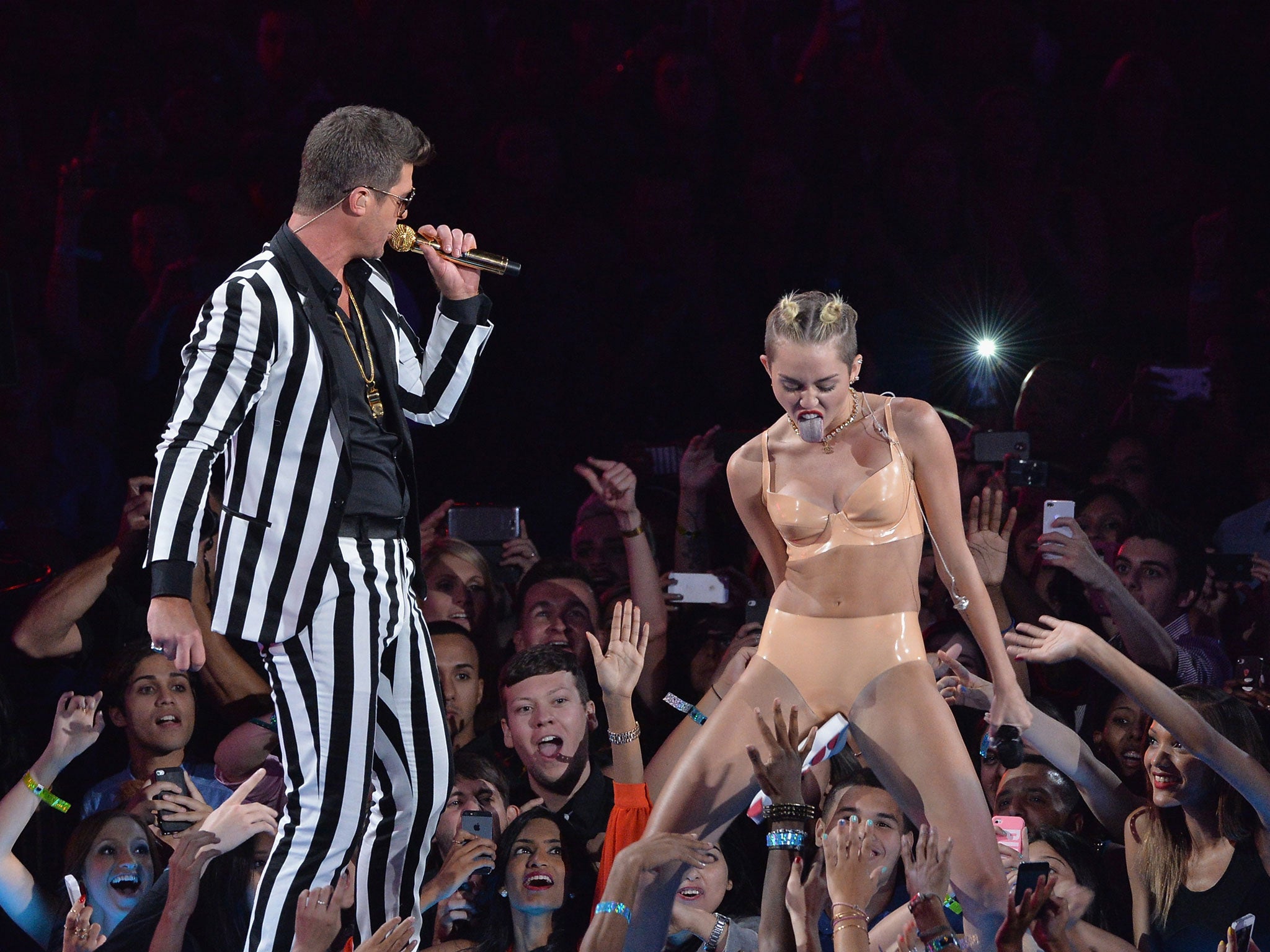'Twerk' dates back to 1820, according to Oxford English Dictionary as it includes Miley Cyrus dance for first time
The word for the sexy dance, now synonymous with Miley Cyrus, is one of 500 new entries but its origins seem to lie in the 19th century

Your support helps us to tell the story
From reproductive rights to climate change to Big Tech, The Independent is on the ground when the story is developing. Whether it's investigating the financials of Elon Musk's pro-Trump PAC or producing our latest documentary, 'The A Word', which shines a light on the American women fighting for reproductive rights, we know how important it is to parse out the facts from the messaging.
At such a critical moment in US history, we need reporters on the ground. Your donation allows us to keep sending journalists to speak to both sides of the story.
The Independent is trusted by Americans across the entire political spectrum. And unlike many other quality news outlets, we choose not to lock Americans out of our reporting and analysis with paywalls. We believe quality journalism should be available to everyone, paid for by those who can afford it.
Your support makes all the difference.The word 'twerk' – describing the sexy dance now synonymous with Miley Cyrus - may date back to 1820, according to the Oxford English Dictionary.
Defined as dancing "in a sexually provocative manner, using thrusting movements of the bottom and hips while in a low, squatting stance", it is one of 500 new entries to the latest edition of the OED.
But researchers found that the word was first used as a noun in 1820, spelt 'twirk', to refer to a "twisting or jerking movement" or twitch. The verb is believed to have emerged by 1848, and the 'twerk' spelling was popularly used by 1901.
While the exact origin of the word is uncertain, it may be a blend of the words twist or twitch, and jerk.
The dance move has been closely identified with Cyrus since her performance, alongside Robin Thicke, at the MTV Video Music Awards in 2013 and 'twerk' first entered the online Oxford dictionary in the same year. But its roots lie in the New Orleans ‘bounce’ hip-sop scene of the 1990s.
Among the other new entries to the OED, are ‘twitterati’ – describing users of the social media service and ‘fo’ shizzle’, meaning ‘for sure’.
‘Meh’, an interjection expressing lack of enthusiasm, has also been included in the latest Oxford English Dictionary. The word is believed to have been first used in 1992, before being popularised by cult TV cartoon The Simpsons.
For a word to qualify, it must have been used in novels and newspapers for at least 10 years.
Fiona McPherson, senior editor of Oxford English Dictionary, said: "We are confident that it is the same origins as the dance. There has been constant use up into the present day to mean that same thing.
"I think it's quite spectacular, the early origins for it. We were quite surprised."
Ms McPherson said the new entries had "earned their place" in the history of the English language.
Additional reporting by Press Association
Join our commenting forum
Join thought-provoking conversations, follow other Independent readers and see their replies
Comments